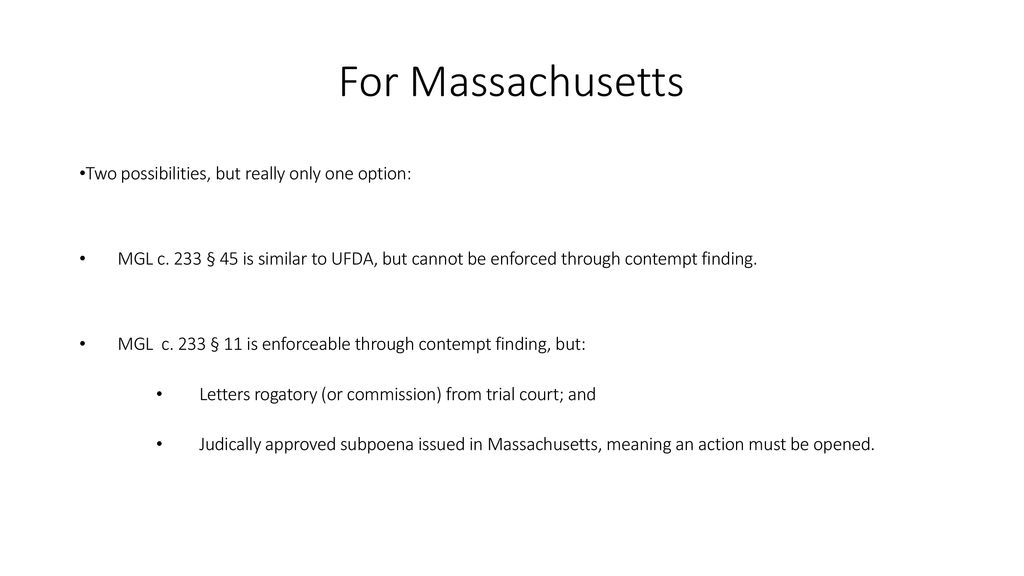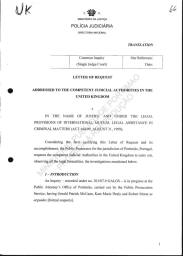The Duty of Letters Rogatory in International Regulation: Trick Insights
Letters rogatory serve as a crucial instrument in international legislation, facilitating cross-border lawful support by permitting jurisdictions to officially request proof and actions from one an additional. What implications might these obstacles have for future legal procedures?
Definition of Letters Rogatory
In the world of international legislation, letters rogatory function as formal demands issued by a court in one territory to look for support from a court in an additional jurisdiction. Letters rogatory. These requests are specifically significant in cross-border lawful process, where the enforcement of a court's order or the event of proof might be hindered as a result of jurisdictional restrictions

The procedure normally requires the asking for court to verbalize the specific details or action needed from the international court, adhering to the lawful procedures and conventions developed in between the jurisdictions entailed. Once released, the letters rogatory are transferred through polite channels, which might include consular offices or consular offices, to make sure that the request is acknowledged and acted upon by the international court. Overall, letters rogatory exhibit the cooperative structure essential for reliable global lawful processes.
Historic Context
Although the method of letters rogatory has ancient roots, its formalization within the structure of international law arised dramatically in the 20th century. Historically, such demands for judicial support were used in numerous lawful customs, including Roman legislation, where they facilitated cross-border cooperation in lawful matters. The principle gained renewed focus with the surge of globalization and the raising intricacy of international lawful interactions.
The mid-20th century saw the establishment of treaties and conventions that sought to standardize the process of letters rogatory. Especially, the 1970 Hague Convention on the Taking of Proof Abroad in Civil or Commercial Matters gave a structured method, enhancing the efficacy of these demands - Letters rogatory. This period noted a change from informal arrangements to a more organized framework, which addressed the challenges positioned by varying nationwide lawful systems
As states became a lot more interdependent, the need for reliable systems to gather evidence across borders ended up being evident, strengthening the duty of letters rogatory in facilitating global teamwork. Today, they remain a vital instrument for getting evidence and making sure that justice goes beyond national limits, showing the progressing nature of worldwide legislation in reaction to international challenges.
Process of Issuing Demands
The procedure of issuing letters rogatory normally includes several important actions designed to guarantee that demands for judicial assistance are clear, particular, and compliant with both international and residential lawful requirements. An event looking for support has to prepare a formal demand that outlines the essential truths of the case, the relief looked for, and the particular proof or statement required. This file must be crafted with precision to meet the legal requirements of the jurisdiction in which it will certainly be sent.
Complying with the preparation of the request, it is submitted to the ideal authority, typically a court or a designated governmental agency. This authority examines the request to guarantee it adheres to legal standards and step-by-step standards. When authorized, the request is transmitted to the international jurisdiction with polite networks.
Upon receipt, the foreign court evaluates the demand's compliance with its regional legislations and techniques (Letters rogatory). If approved, it proceeds to execute the request, which may involve the issuance of subpoenas or the collection of proof. Throughout this procedure, keeping clear communication between the requesting and obtaining jurisdictions is vital to ensure successful collaboration and the satisfaction of the demand
Obstacles and Limitations
Challenges and restrictions regularly discover this arise in the process of executing letters rogatory, often stemming from differing lawful systems and procedures between territories. One considerable barrier is the varying standards of admissibility for evidence, which can bring about complications in the approval of documentation asked for with letters rogatory. Additionally, the lack of uniformity in legal terminology and definitions can produce misunderstandings, complicating interaction in between courts in various countries.
Furthermore, hold-ups prevail due to governmental processes, as the request may require to travel through multiple layers of legal authorities before it is met. In some instances, the asked for jurisdiction might lack the essential resources or readiness to comply, additionally hindering the process. Language obstacles additionally contribute to challenges, as accurate translation of legal files is essential for guaranteeing that the designated message is communicated without distortion.
Lastly, sovereignty concerns might emerge, as some states are unwilling to adhere to requests that they perceive as infringing upon their lawful freedom. These difficulties highlight the complexities inherent in the usage of letters rogatory, demanding higher harmonization and collaboration amongst global legal systems to enhance their performance.

Effect On International Cooperation
Acknowledging the relevance of letters rogatory in cultivating international cooperation is important, as these demands promote cross-border lawful aid and promote collaborative efforts in criminal and civil matters. By enabling one jurisdiction to formally request assistance from another, letters rogatory create a structured legal you could try these out framework that enhances the efficiency of international communication in between judicial authorities.
Using letters rogatory aids to develop common trust fund and regard amongst nations, which is vital in a progressively interconnected world. They serve as a mechanism not only for collecting proof however likewise for guaranteeing that legal processes are promoted throughout boundaries. This is specifically crucial in combating multinational criminal offense, where the inability to secure participation can threaten justice.
Additionally, the reliance on letters rogatory can streamline intricate lawful procedures, reducing hold-ups and unpredictabilities in worldwide investigations. The step-by-step safeguards fundamental in this process add to the security of individual civil liberties while assisting in collaboration amongst states. Eventually, the impact of letters rogatory on global teamwork underscores their duty as important tools in the promo of justice, fostering a joint spirit that transcends nationwide limits and lawful systems.
Conclusion
In conclusion, letters rogatory serve as a crucial tool in international law, assisting in cross-border lawful aid and cooperation. The continued development of these systems is crucial for enhancing the effectiveness of worldwide legal processes, inevitably cultivating more powerful collaboration in both civil and criminal matters across jurisdictions.
Letters rogatory serve as a pivotal instrument in international law, helping with cross-border legal support by enabling jurisdictions to formally request evidence and actions from one another.The procedure usually calls for the asking for court to express the details details or activity required from the foreign court, adhering to the legal methods and conventions developed in between the territories included. Historically, such requests for judicial support were utilized in various lawful practices, consisting of Roman legislation, site here where they helped with cross-border cooperation in lawful issues.The process of issuing letters rogatory generally involves numerous essential actions developed to guarantee that demands for judicial aid are clear, certain, and compliant with both worldwide and domestic lawful requirements.Furthermore, hold-ups are typical due to bureaucratic procedures, as the demand may require to pass with multiple layers of lawful authorities before it is met.
Comments on “Letters Rogatory vs. Mutual Legal Assistance Treaties: Trick Differences Clarified”